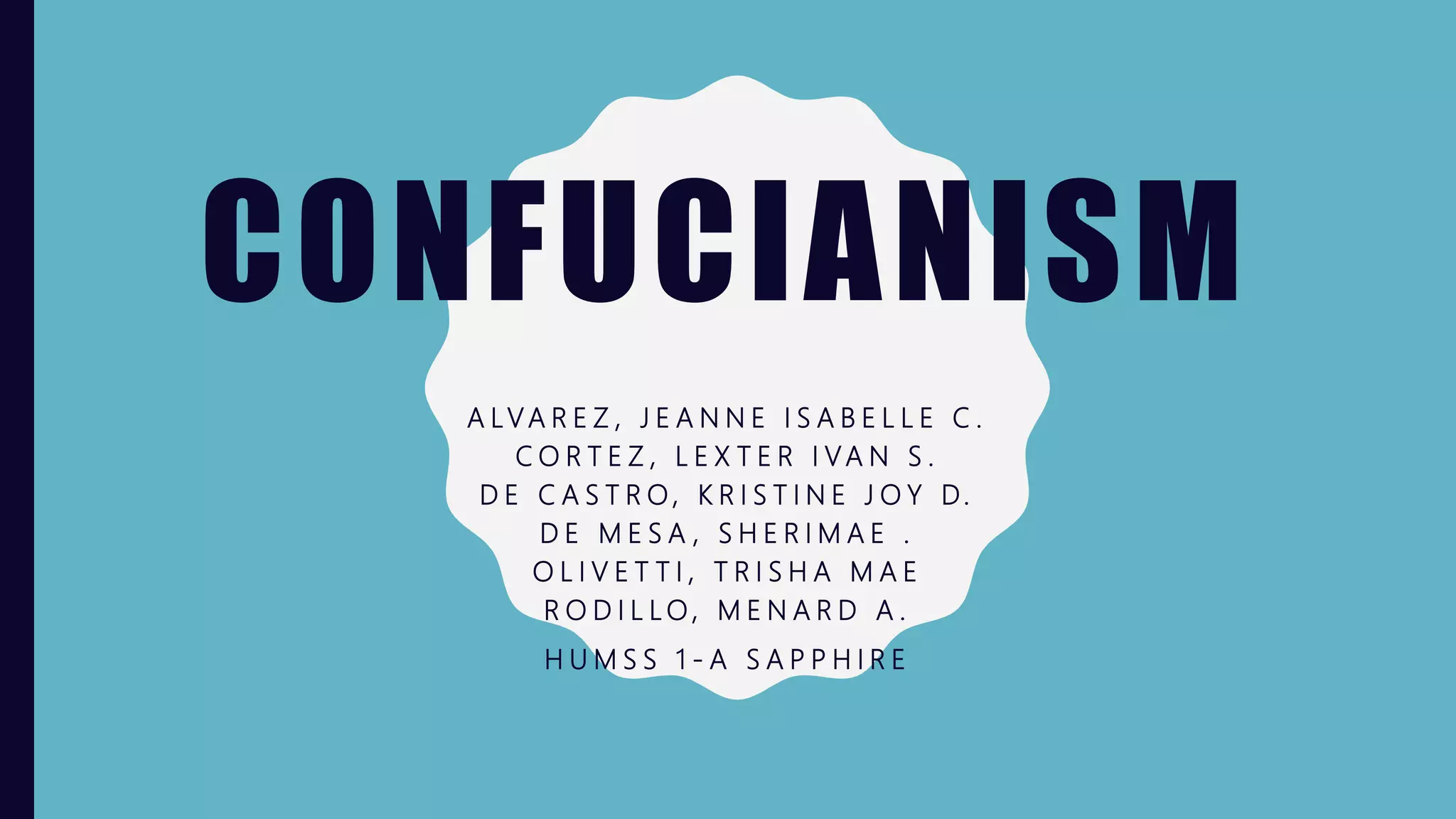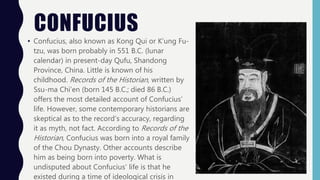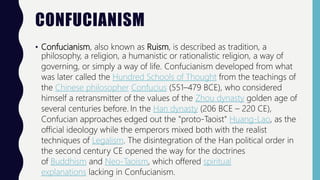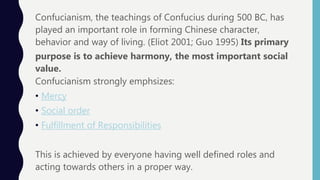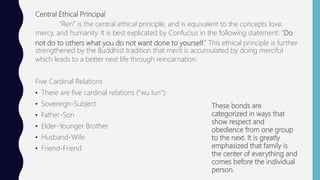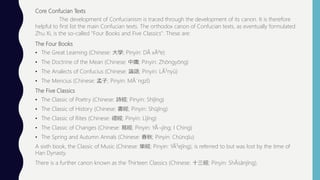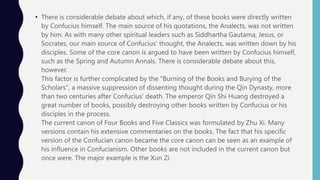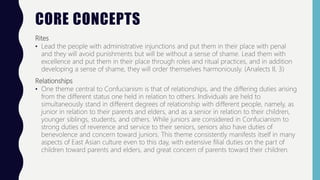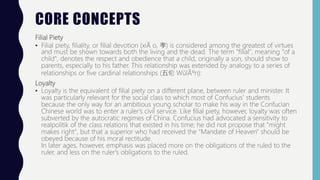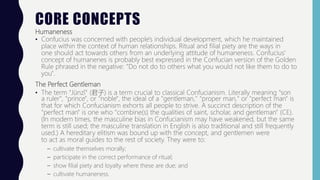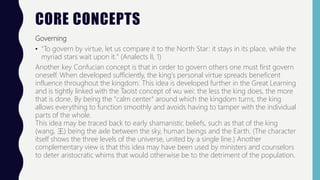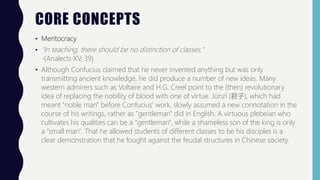Confucianism is an ancient Chinese philosophy that emphasizes social harmony which is achieved through everyone fulfilling their roles and responsibilities. Confucius taught that individuals stand in five relationships to others as sovereign-subject, father-son, elder-younger brother, husband-wife, and friend-friend. Central concepts in Confucianism include ren (humaneness), filial piety, ritual, and the ideal of the perfect gentleman who cultivates virtue and humaneness. Confucius advocated for meritocracy and taught students of all classes.
